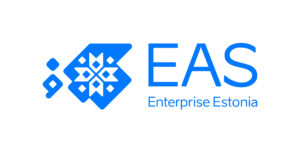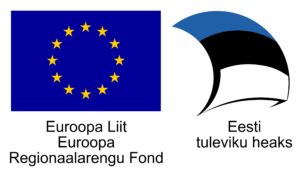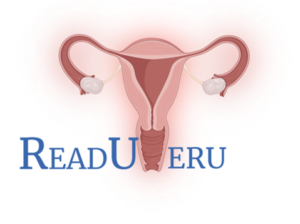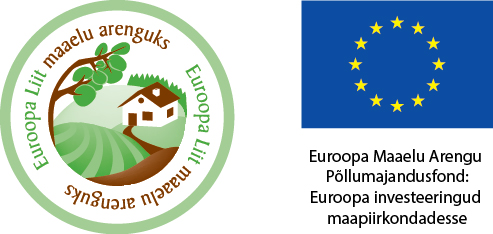Projects
Understanding the molecular basis of female poor reproductive outcome (LOTUS: femaLe reprOducTive sUcceSs)


Principal Investigator: Alberto Sola Leyva
Co-IP: Amruta Pathare
Junior Researcher: Apostol Apostolov
OBJECTIVES:
Motherhood holds a profound significance for many women, yet one in six couples encounters infertility. In vitro fertilization (IVF), the most common treatment, yields a modest pregnancy rate. Moreover, 15% of all pregnancies are spontaneously miscarried. Embryo implantation and pregnancy progression rely on communication between genetically normal embryo and uterus. Even if a genetically normal embryo is transferred, a maximum implantation rate of 50% is achieved, causing the need for multiple transfers. The fact that failed implantation of genetically normal embryo and pregnancy loss are common, underscores the importance of maternal uterine environment, embryo-maternal molecular communication, and uterine microbiota. LOTUS project adopts a holistic approach to unravel the relationship between uterine, embryonic, and microbiota factors in implantation failure and pregnancy loss, aiming to improve diagnostics and personalized treatments for women’s reproductive health.
BUDGET: 584,375€
PERIOD: 01.01.2025 – 31.12.2029.
MORE INFO here
Project ENTER: Development of a network for obstetric care and counselling in the Estonian-Latvian border region.

The ENTER project marks an important step in the development of the obstetric care sector in Latvia, offering future parents the opportunity to benefit from a more affordable and better quality service. Its focus is non-invasive prenatal screening (NIPT). Under the ENTER project, four organisations – the Health Technologies Development Centre AS in Estonia and the Latvian clinics GenEra, “Ģimenes sirds” and Dubultu – have joined forces to provide high quality prenatal care and counselling using modern genetic and digital technologies.
OBJECTIVES: The main objective of the project is to create a state-of-the-art digital data exchange and online counselling system and validate its effectiveness through a 300-patient study.
Building on the already existing Estonian NIPT service (NIPTIFY), the ENTER project aims to support health care providers in Vidzeme, Pierīga and other cross-border Estonian-Latvian regions, thereby improving the quality and sustainability of obstetric care. Every year, around 20 000 babies are born in Latvia, 15% of whom require NIPT due to the risk of fetal genetic chromosomal disease. Therefore, accessibility and affordability of screening and diagnostics for genetic diseases is critical.
Currently, access to these essential health services is limited by the high cost of tests and the lack of interpretation expertise in clinics. The cooperation with the Estonian Health Technology Development Centre, which has successfully implemented the NIPTIFY test, promises to provide important support to Latvian clinics. By sharing their expertise, private clinics can offer genetic testing services without having to create a separate competence in each region. ENTER foresees changing the current structures in Latvia in the field of prenatal care and counselling, thereby improving the quality of services and increasing accessibility through the integration of digital, genetic and clinical competences.
BUDGET: The total cost of the project is €607 700, of which 80% is financed by the Estonian-Latvian programme 2021-2027.
PERIOD: The project will be implemented in the period 01.10.2023 – 30.09.2026.
For more information on the Interreg VI-A Estonia-Latvia programme 2021-2027, click here.
Project NOVAFERT: Novel Advances in Fertility Expertise in Latvia and Estonia

The NOVAFERT project addresses pressing demographic challenges in Estonia and Latvia, where low birth rates and high infertility rates threaten the population’s continuity. With one in six couples experiencing involuntary childlessness, the project focuses on advancing medical solutions for infertility—specifically through assisted reproductive technologies (ART), which have been successful in increasing birth rates in Nordic countries. While ART is available in the Baltics, its use remains limited, with only 2.5% of births in Latvia and 6% in Estonia resulting from ART annually.
OBJECTIVES: NOVAFERT aims to develop two innovative genetic tests to identify genetic factors linked to infertility in both women and men. The tests will focus on complex infertility conditions, such as Premature Ovarian Insufficiency (POI) and Severe Male Infertility (SMI), which affect an estimated 6% of reproductive-age individuals in Estonia and Latvia. These molecular diagnostics will detect a wide range of genetic mutations, from single gene changes to larger chromosomal abnormalities, providing essential information for personalized treatment and family planning options. The tests also offer potential for genetic counseling, helping affected individuals understand inheritance patterns, risks to offspring, and informed family-building choices.
The project represents a significant step toward addressing demographic challenges in the Baltic region by offering couples struggling with infertility enhanced options for achieving parenthood. Additionally, in partnership with Celvia CC AS and Riga Stradins University, NOVAFERT is establishing a foundation for ongoing collaboration in medical genetics research within the EstLat cross-border region.
FUNDING: The total project budget is 590.237,50 euros, with a substantial 80% contribution coming from the Estonia-Latvia Programme 2021-2027.
PERIOD: The project will be implemented in the period 01.09.2024 -31.08.2027.
For more information on the Interreg VI-A Estonia-Latvia programme 2021-2027, click here.
SCANS (Sepsis miCrobiAl dNa Sequencing) project.


SCANS (Sepsis miCrobiAl dNa Sequencing) is a project funded by the Entrepreneurship and Innovation Foundation and supported by the Entrepreneurial Applied Research and Post-applied Product Development programme. The aim of the project is to develop a novel liquid biopsy method for the diagnosis of sepsis – a diagnostic test to identify microbes and their antibiotic resistance in human blood samples, allowing timely and accurate sepsis prevention. Clinical trials will also be carried out to validate the test.
Project partners: the Health Technologies Development Centre AS, the University of Tartu, SYNLAB Eesti OÜ, Tartu University Hospital SA.
BUDGET: The total cost of the project is EUR 1 846 317,26, of which EUR 1 287 625,76 is co-financed by the Estonian Enterprise and Innovation Foundation.
PERIOD: The project will be implemented in the period 01.10.2023 – 30.09.2026.
Read more about the applied research programme here.
ReadUteru (Automatic assessment of uterine receptivity)



To achieve the main objective of the project:
- A methodology for endometrial/uterine sampling (biopsies) will be developed;
- An artificial intelligence model will be developed to segment uterine histological images and distinguish visual features;
- A cloud-based IT model for data collection, analysis, storage and reporting, including back-end and front-end algorithms.
Result: the ReadUteru algorithm suggests the best day for IVF embryo transfer to maximise pregnancy outcome.
"Development of a DNA-based method to identify the composition and origin of honey" ( DNA analysis of honey).

The project is supported by PRIA through the Estonian Rural Development Programme 2014-2020, measure 16.2 “Support for the development of new products, practices, processes and technologies”. The honey DNA analysis project in Estonia is implemented by Muhe Mesi OÜ together with research partner Health Technologies Development Centre AS. The duration of the project is July 2020-December 2023.
The main objective of the project is to develop novel DNA sequencing-based methods to determine the composition and origin of honey. The new method to be developed will make it possible to identify from which plants the honey comes, which other organisms (e.g. insects) DNA traces in the honey, the geographical origin of the honey and whether it is syrup-based or genuine honey produced by bees. The project will also analyse the composition, origin and authenticity of the honey sold on the Estonian market.
Estonian bee subspecies RNA virus survey 2024 (May-August 2024)

beefEST

The project is supported by PRIA through measure 16.2 “Support for the development of new products, practices, processes and technologies” of the Estonian Rural Development Programme 2014-2020.The project’s beefEST promoters are ETKÜ, a member of the Dairy Cluster’s EIP working group, and Health Technologies Development Centre AS. The duration of the project is May 2020- April 2023.
The aim of the project is to create a prototype of the beefEST herd data management application for beef cattle farmers. It should combine breeding and pedigree data with daily animal health records, herd and pasture management information. The new tool will support the day-to-day herd management of both cross-breed and pure-bred beef cattle farmers by collecting, integrating and making better use of both breeding and economic accounting data.


